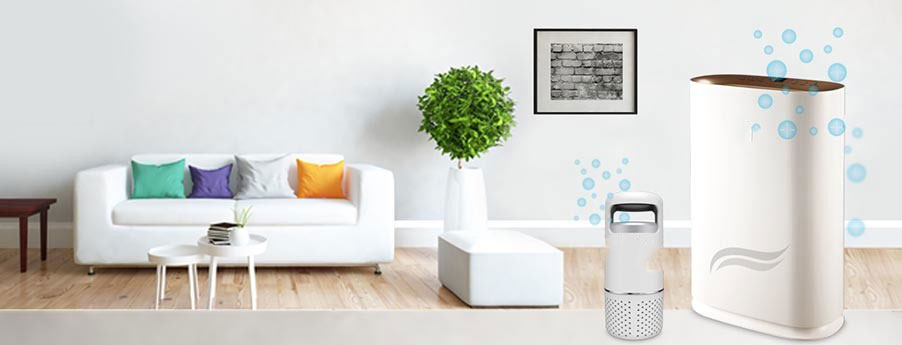
大多数家庭的空气质量遭受了三个主要问题。它太潮湿了,太干了,或充满空气污染物。通常气候在这方面发挥作用。例如,在冬季期间,由于加热,内部的空气干燥。在夏天,即使房子很好地播出,空气也更加潮湿。
这意味着不是每个房子都有相同的空气问题。此外,一个家庭的解决方案是不对的。室内空气质量也在人们的健康中发挥作用。那么,什么对我们来说很好?三个关键因素有助于室内空气的状况。它们是新鲜度,清洁度和正确的湿度水平。bob88官方网站
除湿机、空气净化器和加湿器是不同的东西。bob多特蒙德官方下载很多人把这三种设备搞混了,但它们的功能完全不同。幸运的是,我们在这里解释它们之间的区别。我们还解释了它们的目的、特性和每个类别的各种模型。
我们在Humybob88官方网站expert.org,希望帮助您在家里获得最佳的空气质量。这就是为什么我们的网站致力于向您展示每个班级的顶级产品。我们还为他们创建了全面的评论。接受受过教育并为您家提供合适的单位!
bob多特蒙德官方下载除湿机:它们是什么?它们能做什么?

由于除湿机的工作,你家里的湿度水平显著下降。bob88官方网站你可以从收集的水中看到空气中的湿度。bob88官方网站也就是说,当容器达到最大容量时,你必须处理掉水。记住小型除湿机,你需要更经常地把水倒掉。然而,有些型号的泵排水不使用水箱,但它们连接到水槽或排水道。
通过使用除湿机,你可以放心,需要湿度才能生存的微生物和霉菌孢子也会死亡。bob88官方网站通常情况下,地下室都有严重的霉菌问题。使用一个地下室有好的除湿机保证你有一个没有真菌的地方此外,湿度和真菌给空间带来一股难闻的bob88官方网站气味,这种设备将会消失。如果你住在空气总是潮湿的地方,你肯定需要这样的产品。更重要的是,降低家里的湿度有助于家电和枪支安全。你可以在我们关于枪支安全除湿机的帖子。bob多特蒙德官方下载
类型的除湿机bob多特蒙德官方下载
谈到除湿机,你可以选择以下几种类型bob多特蒙德官方下载:
·热干燥器
也称为珀尔帖除湿机,这是除湿机最受欢迎的选择之一。bob多特蒙德官方下载这也是最实惠的选择。这种类型的加湿器从房间带走潮湿的空气,冷却它,除湿它,然后释放它到房间。在某种程度上,你可以说它就像空调一样工作。
这些装置的唯一问题是你不能在非常低的温度下有效地使用它们。因为它们是通过冷却空气来工作的——如果空气之前已经冷却过,它们就不工作了。这就是为什么不建议在零度以下使用它们的原因。
·干燥剂除湿机
那些生活或工作在零度以下气候的人可能会受益bob app官网 因为它们的工作原理是吸收水分,而不是冷却和处理水分。
与Peltier除湿机不同,干bob多特蒙德官方下载燥剂在除湿之前不会冷却空气。它所需要的就是通过干燥剂将水分抽走。流行的干燥剂包括硅胶,它可以在每次使用后干燥并重复使用。一些现代产品甚至使用液体干燥剂技术,因为它已被证明可以有效地从空气中提取水分。这些类型的除湿机通常更紧凑,也bob多特蒙德官方下载更安静。
·商用除湿机
如果您有更大的脱离,例如小型建筑物或仓库,那么您可能希望参加商业级除湿机。如果您正在寻找这种强大的单位并希望了解更多关于他们的信息,请参阅我们的文章和商业级除湿机综述bob多特蒙德官方下载.
除湿机的容量和尺寸bob多特蒙德官方下载
在解释了类型之后,我们必须补充一下,除湿机的容量和尺寸是不同的。它们的大小从30品脱到130品脱不等。
- 例如,30-Pint bob多特蒙德官方下载Dehumidifiers非常适合卧室或者一个小地下室。这种产品适合在儿童房间使用。
- 中型住宅需要相应大小的除湿机。bob多特蒙德官方下载这种装置能在24小时内收集50品脱的水。如果你的房子在300到800平方英尺之间。,然后检查我们的b0b体育投注 选择最适合你的。
- 一些除湿机bob多特蒙德官方下载足够大,可以收集整个房子的湿度,或高达2500平方英尺。bob88官方网站如果你有兴趣买这么大的房子,可以看看我们的bob app官网下载 为更多的信息。
还有更大的单元可以用来建造更大的房子,面积可达5200平方英尺。如果您想了解更多关于大容量产品的信息,请查看我们的对全屋除湿机的评论bob多特蒙德官方下载.
Humidifiers:他们是什么,他们如何工作?

干燥的室内空气会导致嘴唇或皮肤皲裂等问题,但也可能是各种呼吸问题的原因。当空气中有足够的水分时,这些问题就会得到缓解。正如我们上面所说,理想的室内湿度百分比在40%到50%之bob88官方网站间。
bob电竞登录官网
bob菠菜真假
- 冷雾产品释放凉爽的蒸汽到空气中。这些型号使用一种特殊的过滤器,在冷空气释放之前阻止空气污染物。这种加湿器最适合温暖的气候,对于有孩子的房子也更安全。然而,与同类产品相比,这些产品噪音更大,需要更多的维护。更多的优点和缺点,这些设备,检查我们的冷雾加湿器评论.
- 温暖的雾单位通过加热水来制造温暖的蒸汽,以释放到空气中。它们与凉爽的雾产品类似,但有几个差异。您可以阅读更多信息暖雾加湿器及其优缺点来更好地了解他们。
- 超声波加湿器使用金属振膜。高频产生水滴,风扇将水滴分散到空气中。能源消耗非常少,而且它们不会发出任何噪音。晚上在卧室里使用非常好。此外,大多数旅行型加湿器都是这种类型的。如果你对阅读这个选项感兴趣,请参阅我们的发布关于旅行加湿器的帖子.
缓解健康问题的加湿器类型
除了干燥的嘴唇和皮肤问题外,一些呼吸问题是干咳,鼻子和喉咙刺激。此外,有过敏或与呼吸相关的健康问题的人可以体验严重的问题。一种好全屋加湿器可以帮助解决所有这些问题。
加bob体网连接湿器可以帮助缓解以下问题:
- 当空气使鼻子干燥,呼吸道粘膜发炎时,鼻窦问题就开始了。这种炎症也会增加患流感或感冒的风险。我们有一个指南是治疗鼻窦问题的最佳增湿器让你退房。
- 如果空气太冷或太干燥,哮喘患者可能会有更严重的问题。对他们来说,保持适当的空气湿度是至关重要的。bob88官方网站所以,如果你Wonder是一种对哮喘有益的加湿器,答案是肯定的。这样的产品可以改善室内空气质量,缓解你在家里的哮喘发作。
- 如果鼻腔受到刺激,过敏症状会变得更严重。这通常是由干燥的空气造成的。有时严重的症状会导致鼻窦感染,所以保持室内空气处于理想的湿度水平是很重要的。bob88官方网站你可以看看我们的关于过敏症的加湿器的详细帖子如果你需要更多的信息。
- 当皮肤过于干燥时,湿疹就会突然发作。这可能是由各种原因造成的。其中之一就是家里干燥的空气,尤其是在冬天。有时仅仅使用保湿霜是不够的。买一个好的加湿器,一年四季都能缓解湿疹。请参阅我们的关于缓解湿疹的加湿器的最终指南.
空气净化器:它们是什么,它们的工作是什么?

有不同类型的过滤器使用-纤维,玻璃纤维,网,纸,甚至紫外线。不管是什么类型的过滤器,都必须定期更换。
这些设备能从空气中去除的是灰尘、烹饪或烟草产生的烟雾、花粉、宠物皮屑等。然而,它们不能去除VOCs或氡。空气净化器对于有过敏症或哮喘的人也很理想。我们建议你看看我们的空气净化器霉菌和病毒的独家指南这样你就可以了解这些设备是如何改善你的健康状况的。
空气净化器的类型
这些机器使用不同的净化技术。以下是市场上可供选择的几种类型:
- 高效微粒阻力过滤器(HEPA过滤器)是空气净化器中最常用的过滤器类型。
- 活性炭吸收挥发性化学物质,将其转化为气体和固相,从而将其从空气中去除。
- 电离净化器的工作原理是通过产生带有相反电荷粒子的离子来收集空气中的污染物。
- 紫外线使空气中的微生物无菌,因此对你和你的家人是无害的。
总结
现在你知道了空气净化器,加湿器和除湿器之间的区别以及它们各自的作用。bob多特蒙德官方下载根据你家里的空气质量和房子的大小,你现在就知道你需要哪种设备了。不要再等了——深入阅读我们的文章,探索这些设备的多样性。别忘了挑一个你需要的,然后给我们留言。